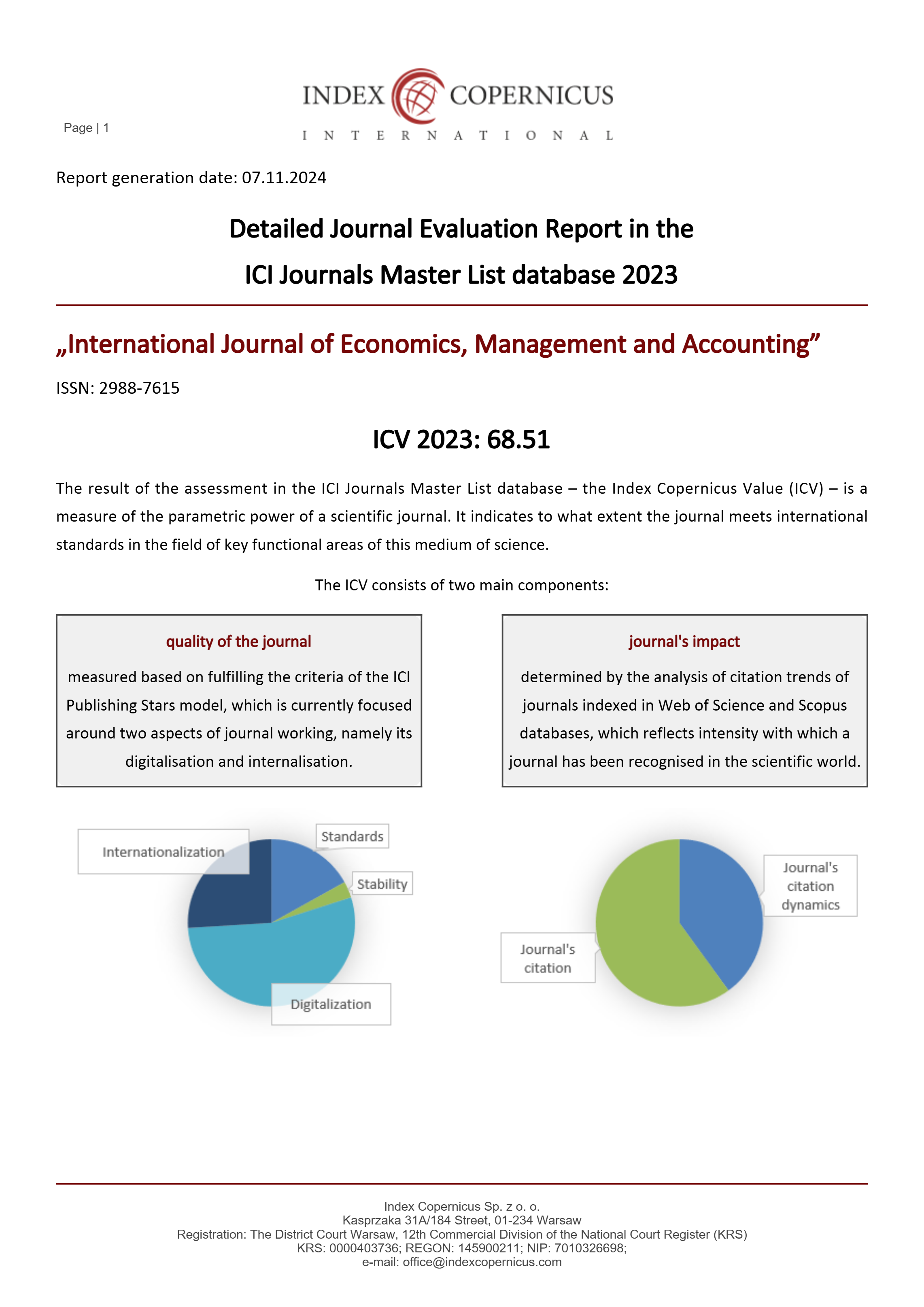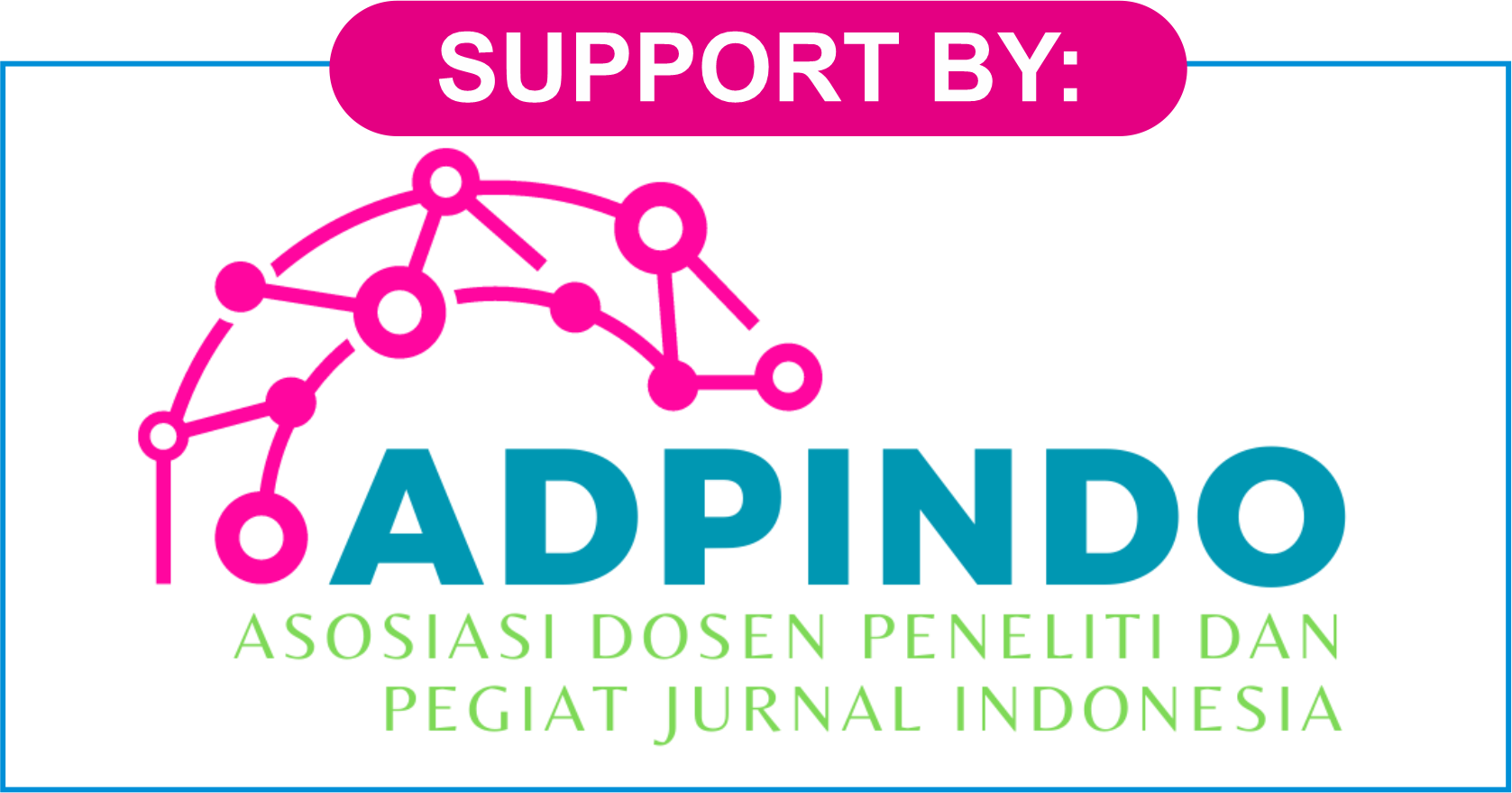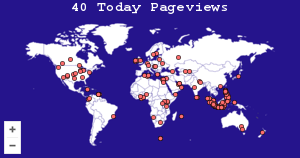The The Vector Error Correction Model (VECM) in Analyzing the Impact of Economic Growth, Population Growth, and Carbon Emissions in Indonesia
DOI:
https://doi.org/10.47353/ijema.v2i8.226Keywords:
Carbon Emissions, Economic Growth, Primary Energy ConsumptionAbstract
Managing carbon emissions is a pivotal challenge in Indonesia due to its significant impact on climate change and environmental sustainability. This study aims to examine the dynamic relationships between economic growth, primary energy consumption, and carbon emissions in Indonesia, employing the Vector Error Correction Model (VECM) approach. Using annual data from 1996 to 2023 sourced from the World Bank, the analysis investigates both short-term and long-term effects of the independent variables on carbon emissions. The findings reveal that primary energy consumption exerts a substantial and consistent impact on increasing carbon emissions across both time horizons, whereas the influence of economic growth appears more variable and less pronounced. The Impulse Response Function (IRF) analysis demonstrates a persistent upward trend in carbon emissions following shocks from primary energy consumption. Moreover, the Variance Decomposition analysis highlights that by the 25th period, primary energy consumption accounts for 23.79% of the variance in carbon emissions, whereas economic growth contributes only 4.09%. These results underscore the urgent need for Indonesia to prioritize energy transition policies that promote the adoption of renewable energy sources and improve energy efficiency. Such measures are essential to mitigate carbon emissions and support the country’s commitment to sustainable development and environmental preservation.
Downloads
References
Acheampong, A. O. (2018). Economic growth, CO2 emissions and energy consumption: What causes what and where? Energy Economics, 74, 677–692. https://doi.org/10.1016/j.eneco.2018.07.022
Ekananda, M. (2016). Analisis ekonometrika time series : teori lengkap dan pembahasan menyeluruh bagi penelitian ekonomi, manajemen dan akuntansi. https://opac.perpusnas.go.id/DetailOpac.aspx?id=1183960#
Espoir, D. K., Sunge, R., & Bannor, F. (2023). Exploring the dynamic effect of economic growth on carbon dioxide emissions in Africa: evidence from panel PMG estimator. Environmental Science and Pollution Research, 30(52), 112959–112976. https://doi.org/10.1007/s11356-023-30108-4
Husna, Z. (2019). PENGARUH KONSUMSI ENERGI DAN REZIM TERHADAP PERTUMBUHAN EKONOMI DI INDONESIA.
Juliani, R., Rahmayani, D., Akmala, N. T., & Janah, L. F. (2021). ANALISIS KAUSALITAS PARIWISATA, KONSUMSI ENERGI FOSIL, PERTUMBUHAN EKONOMI DAN EMISI CO2 DI INDONESIA. In JDEP (Vol. 4, Issue 2). https://ejournal.undip.ac.id/index.php/dinamika_pembangunan/index
Kamanda, E., Tanyara Sunge, R., Kamanda Espoir, D., & Sunge, R. (2021). Co2 Emissions and Economic Development in Africa: Evidence from A Dynamic Spatial Panel Model Co2 Emissions and Economic Development in Africa: Evidence from A Dynamic Spatial Panel. https://doi.org/10.13140/RG.2.2.24275.09764
Kementerian ESDM. (2014). PP No. 79 Thn 2014.
Mikayilov, J. I., Galeotti, M., & Hasanov, F. J. (2018). The impact of economic growth on CO2 emissions in Azerbaijan. Journal of Cleaner Production, 197, 1558–1572. https://doi.org/10.1016/j.jclepro.2018.06.269
Osadume, R., & University, E. O. (2021). Impact of economic growth on carbon emissions in selected West African countries, 1980–2019. Journal of Money and Business, 1(1), 8–23. https://doi.org/10.1108/jmb-03-2021-0002
Solikah, A. A., & Bramastia, B. (2024). Systematic Literature Review : Kajian Potensi dan Pemanfaatan Sumber Daya Energi Baru dan Terbarukan Di Indonesia. Jurnal Energi Baru Dan Terbarukan, 5(1), 27–43. https://doi.org/10.14710/jebt.2024.21742
Ssekibaala, D. S., Ariffin, M. I., & Duasa, J. (2022). Economic growth, international trade, and environmental degradation in Sub-Saharan Africa. Journal of Economics and Development, 24(4), 293–308. https://doi.org/10.1108/jed-05-2021-0072
Sugiyanto, H., Keuangan, P., & Stan, N. (2017). THE CAUSALITY BETWEEN ENERGY CONSUMPTION AND GROSS DOMESTIC PRODUCT (GDP) IN INDONESIA, MALAYSIA, THAILAND AND SINGAPORE.
Tahir, T., Luni, T., Majeed, M. T., & Zafar, A. (2021). The impact of financial development and globalization on environmental quality: evidence from South Asian economies. Environmental Science and Pollution Research, 28(7), 8088–8101. https://doi.org/10.1007/s11356-020-11198-w
Trihusodo, P. (2021). Langkah Konkret Indonesia Perangi Perubahan Iklim. Portal Informasi Indonesia.
Downloads
Published
How to Cite
Issue
Section
License
Copyright (c) 2025 Daffa Nanda Pratama, Neli Aida, Asih Murwiati

This work is licensed under a Creative Commons Attribution 4.0 International License.











